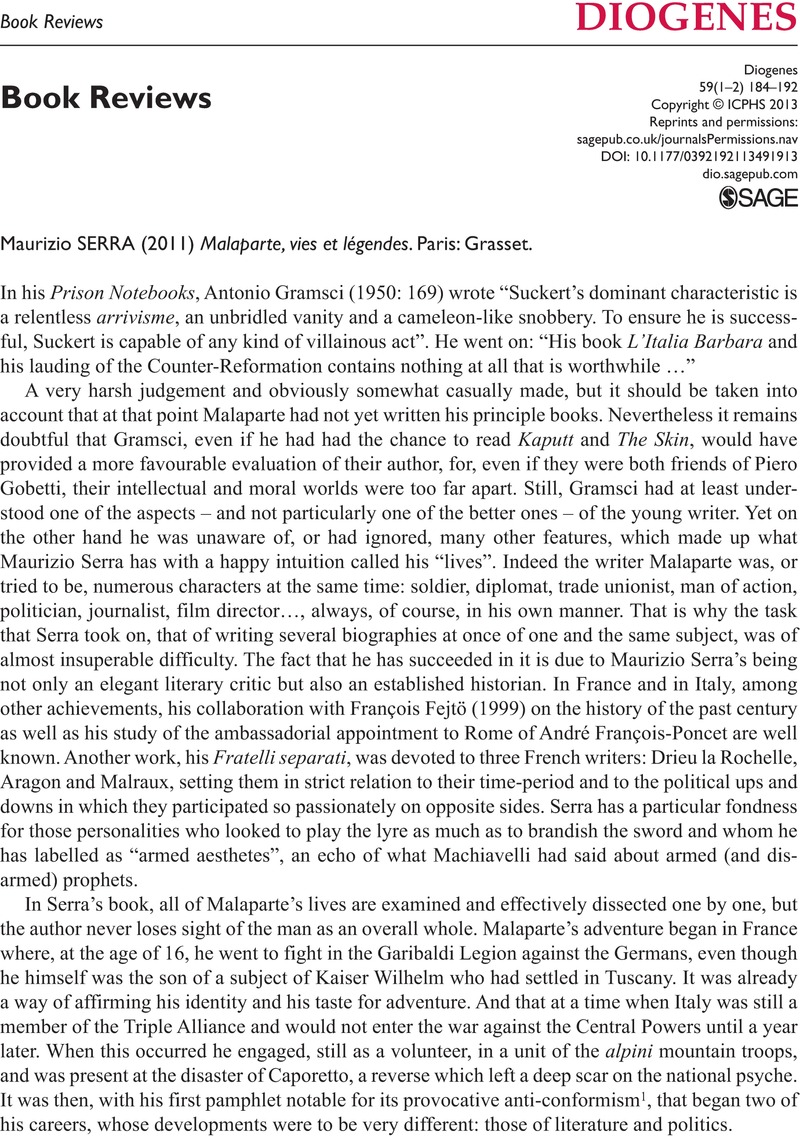No CrossRef data available.
Article contents
Maurizio Serra (2011) Malaparte, vies et légendes. Paris: Grasset.
Review products
Maurizio Serra (2011) Malaparte, vies et légendes. Paris: Grasset.
Published online by Cambridge University Press: 01 January 2024
Abstract
An abstract is not available for this content so a preview has been provided. Please use the Get access link above for information on how to access this content.

- Type
- Book Reviews
- Information
- Copyright
- Copyright © ICPHS 2013


